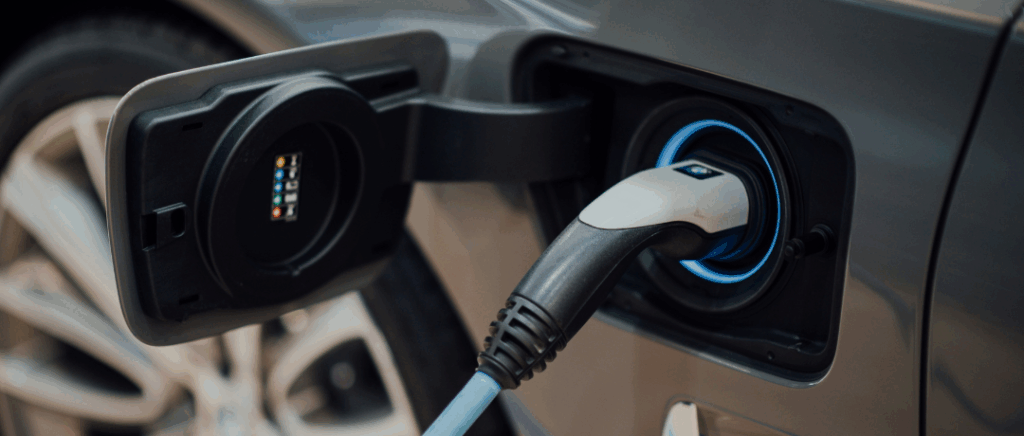Chinese electric cars on European soil: unfair competition and dumping?
While the European Union has approved a ban on combustion engines in new vehicles from 2035, there is a certain amount of apprehension in Europe, the cradle of famous brands and a leader in automotive innovation for over 100 years.
The European Commission's investigation
At present, the China accounts for around 8 % of electric car sales in Europe. This rise to global prominence is illustrated in particular by the Chinese carmaker BYD a, for the first time, surpassed Tesla in terms of deliveries of electric cars in the 4ᵉ quarter of 2023..
In response to fears of a massive influx of Chinese electric cars onto the European market, Europe initiated the October 2023 an investigation into the subsidies granted to these vehicles in question.
World markets are now flooded with cheap Chinese electric cars, the price of which is kept artificially low by massive public subsidies.
Ursula von der Leyen, President of the European Commission
This survey, limited to 13 months, will assess the scale of Chinese subsidies in this sector. In the event of proven unfair competition, Europe will be able to impose sanctions. additional customs duties on the products concerned, in accordance with WTO (World Trade Organisation) rules.

As a reminder, from 1ᵉʳ January 2024, France will only issue a environmental bonus than electric vehicles with a environmental score deemed acceptable. Only vehicles whose CO2 emissions during production and transport to the end customer remain below a certain threshold are eligible for this aid.
In addition to this environmental score :
- sound weight must be under 2.4 tonnes,
- its cost must not not exceed €47,000 including tax excluding options,
- and must be powered by electricity and/or hydrogen zero CO2 exhaust emissions.
In short, this measure excludes all Chinese vehicles.
The European Commission's final verdict
After 9 months of investigation, on Wednesday 12 June 2024, the European Commission temporarily established that the value chain for electric vehicles with battery in China was supported by subsidies deemed unfairthus posing a economic threat to electric car manufacturers in the European Union.
Despite opposition from a number of countries, including Hungary, Germany and Sweden, the latter has declared that it will introduce provisional tariffs of up to 38.1% on imports of Chinese electric carsThis measure is likely to provoke anger in China and lead to possible retaliation. These provisional duties will be added to the current tariff of 10% on imports of new vehicles into Europe.
From now on, in addition to the 10% tax on vehicles produced in Chinese factories in the EU, the Commission plans to impose countervailing duties of :
- 17,4% for the Chinese manufacturer BYD,
- 20% for Geely,
- and 38,1% for SAIC.
Concerning other manufacturers, those who collaborated in the surveys will be subject to a customs duty of 21%while those who have not will be subject to a rate of 38,1%.
Lin Jian, spokesperson for the Chinese Ministry of Foreign Affairs, was quick to criticise "the purely protectionist behaviour"of Europeans. It also warned that it "will take all necessary measures to firmly defend its legitimate rights".
The Asian country defends itself by maintaining that its companies have conquered market share mainly through the quality and technological innovation of their products.
💡Did you know ? In 2023, China will have overtaken Japan as the world's leading car exporter, having invested early in batteries.
Europe now has a few weeks to reach an agreement with China. If negotiations with the Chinese authorities fail, these temporary countervailing duties will come into force on 4 July 2024They will be levied in the form decided by the customs authorities of each Member State. However, it is important to specify that they will only be levied when definitive duties are actually introduced.
After the introduction of provisional rights, Brussels will have 4 months to apply definitive duties. However, they can be cancelled if at least 15 Member States, representing 65 % of the EU population, object.
Our aim is not to close the EU market to Chinese electric vehicles, but to ensure that competition is fair.
Valdis Dombrovskis, European Commissioner for Trade
💡Did you know ? The week before the EU decision, the shares in Chinese electric car manufacturers have fallen in Hong Kong. Geely and XPeng saw their values fall by around 8 %while BYD suffered a fall of around 3 %.
On the American side, on 14 May, President Joe Biden declared a Increased customs duties on Chinese electric vehicles from 25% to 100%. This measure is intended to strengthen the American market, thereby favouring Tesla, the national leader.
The impact of this measure on European carmakers
Initially, these initiatives were put in place so that the European Union could defend its automotive sector, as this :
- create a large number of well-paid jobs,
- is promoting an environmental programme aimed at reducing CO₂ emissions from transport.
Despite the EU's various plans to promote electric vehicles, some European countries have been faced with major obstacles. recent difficultiesThis is due in particular to the removal of purchasing incentives in Germany and other markets. On top of that, we have the customs duties imposed by the European Commission.

German manufacturers such as Volkswagen and BMW would be affected by a trade dispute following the latest measures. The reason? Both have sold 4.6 million vehicles in China by 2022This is a key market for their business.
As with the other two manufacturers, China accounts for 36 % of total deliveries of making the latter particularly vulnerable to reprisals.
However, they are not the only European car manufacturers to have expressed their concerns. Companies such asAudi, Mercedes and Volkswagen do the same around 40 % of their sales in China.
The risks of a major trade conflict are obvious and the consequences must be taken into account.
Spokesman for the Federation of the German Automotive Industry
We also have Volvo, a Swedish manufacturer owned by the Chinese group Geely, which makes 42 % of its sales in Europe and 24 % in China.
It's a bad idea (...) to dismantle world trade.
Swedish Prime Minister Ulf Kristersson
In short, higher taxes could provoke retaliatory measures against them.
This is why taxes have been overwhelmingly rejected by Western manufacturersOla Källenius, Chairman and CEO of Mercedes-Benzarguing in favour of open markets.
We are not closing our markets to foreign companies, because we don't want that for our companies either.
Olaf Scholz, German Chancellor
The counter-attack by Chinese manufacturers against these measures
Just to counter the decision to introduce an environmental score for eco-friendly vehicles, the subsidiary MG of SAIC Motor in China has opted for a immediate €4,000 discount on all electric and plug-in hybrid models.
What's more, Chinese giant BYD has announced plans to build a factory in Hungary to avoid economic sanctions against Chinese models.
On the other hand, following the investigation led by the European Commission, China launched an investigation in January targeting all the eaux-de-vie of wine imported from the European Union, specifically including cognac. But that's not all: according to the Chinese state media, they will also be targeted:
- wine,
- pork,
- dairy products,
- and large-engined vehicles.
As a reminder, European car manufacturers, particularly the Germans, are voicing their concerns. Companies such asAudiBMW, Mercedes and Volkswagen around 40 % of their sales in China. Higher taxes could provoke retaliatory measures against them.
Electric vehicles concerned
Among the vehicles affected by these punitive measures are the Dacia Springan affordable choice for many European consumers. Volvo EX30recently elected 2024 premium car, will also be affected.
What's more, the new Smart #1 and Smart #3as well as Tesla Model 3 will also see their selling prices potentially increase.
These models account for a significant proportion of the electric vehicle market in Europe, making the price increase all the more significant.
What's more, the European Union's decision to withdraw the ecological bonus for cars manufactured in China further complicates the situation for consumers.
This combination of factors is likely to make the purchase of electric vehicles less attractive, which could slow down the adoption of these vehicles in the region.
Conclusion
The European Union's decision to impose additional taxes on Chinese electric vehicles is likely to have a significant impact on the European market, affecting both carmakers and consumers.
From now on, there are 2 major questions:
- What will be the long-term consequences for the production chain and final selling prices?
- What strategies can European carmakers adopt to remain competitive?
We'll be keeping an eye on developments in this area over the coming weeks. Stay tuned to our blog Beev so you don't miss out on any electrifying news!
Want to go electric?
































